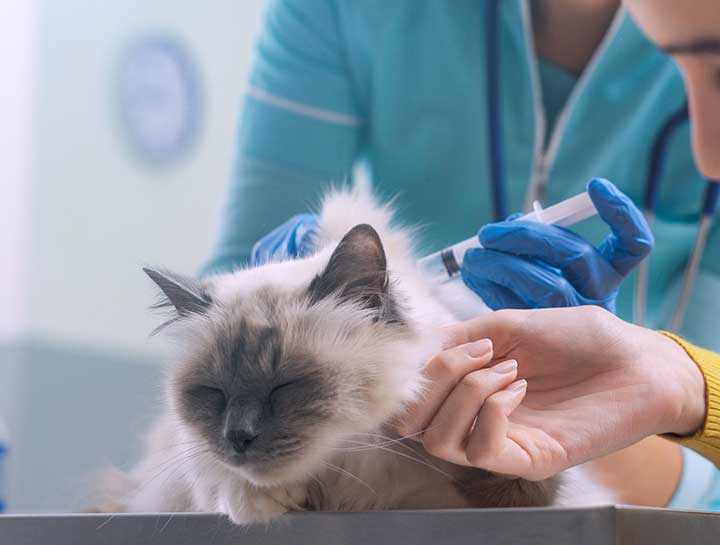Preventive Care for Cats
Help your cat live a longer, happier life.
Preventive care is an essential part of keeping your cat happy and healthy. It will give you peace of mind and increase the odds of detecting underlying health conditions before they become advanced and more costly to treat.
How often should my cat see a veterinarian?
At Purrfect Care Feline Medical Center, we make our preventive care recommendations using the guidelines established by the American Association of Feline Practitioners (AAFP) and the American Animal Hospital Association (AAHA). From there, our veterinarians further customize their suggestions based on risk factors including your cat’s age, lifestyle, breed, and medical history.
Typically for cats under the age of 10, we suggest scheduling one exam yearly during which one of our veterinarians will review your cat’s medical history, assess their behavior, make dietary recommendations, and evaluate any known health conditions they may have. For cats aged 10-14, we recommend semi-annual wellness exams, since these cats would be at higher risk of developing illnesses. For geriatric cats over age 15, we recommend quarterly wellness exams.
What should I expect from a preventive cat care exam?
Think of your cat’s wellness exam like your own yearly physical. At the appointment the doctor will examine their eyes, ears, teeth, and skin, listen to their heart and lungs, palpate their internal organs, assess their body condition, and evaluate their joint health.
You can also expect your veterinarian to make recommendations for:
- Vaccines based on your cat’s age, medical history, and lifestyle. Core vaccines include rabies (required in Franklin County) and the feline upper respiratory and panleukopenia combination vaccine. Your cat's veterinarian may also recommend the feline leukemia (FeLV) vaccine.
- Parasite prevention products to keep your cat safe from fleas, ticks, intestinal worms, and heartworms.
- Diagnostic testing to identify any health conditions that cannot be detected during a physical exam and to confirm your cat is free from internal parasites.
- Dental procedures under anesthesia, since cats are very prone
to periodontal disease and tooth resorptions. Dental care is a
key component to your cat’s overall health.
Your cat's veterinarian will answer any questions you may have and discuss other services that could improve their overall health such as spaying/neutering, microchipping, and diagnostic services.
Call us at (614) 486-7877 or request an appointment online to schedule your cat's annual preventive care exam.

